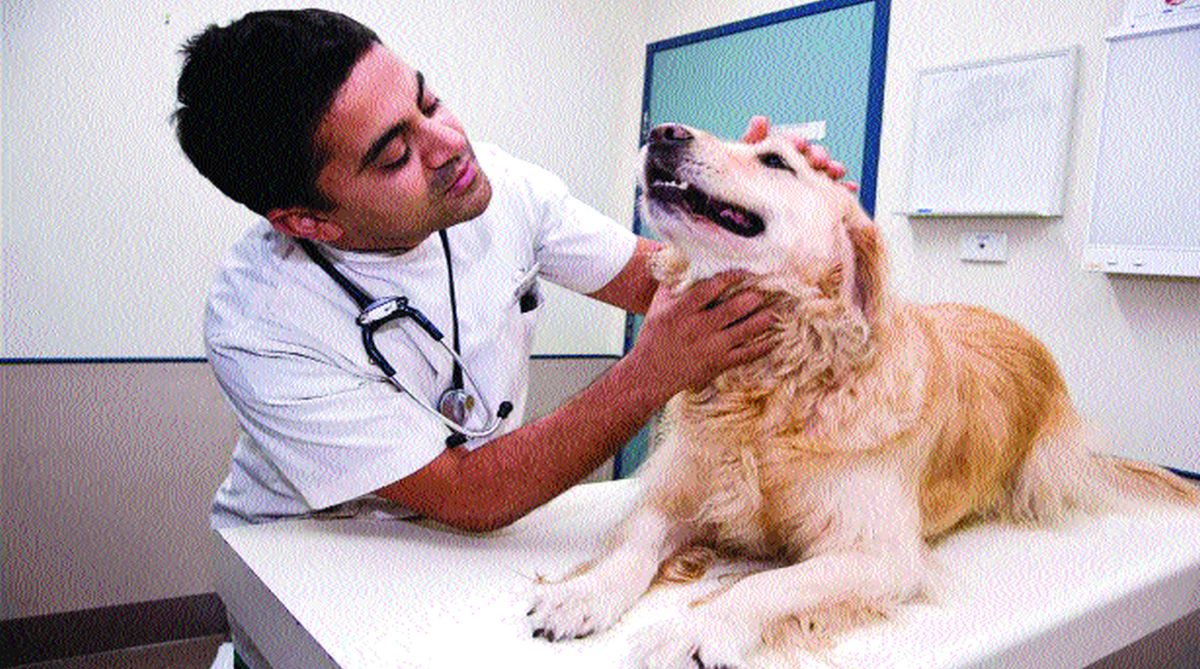If you love animals and are comfortable living around them, then you can explore the option of education and career in veterinary science and animal care.
Veterinarians are basically doctors who care for the health of animals. They treat the injuries and illness of pets and other animals and provide treatments for animals that are similar to those physicians provide to human. Veterinary science deals with the health and well-being of animals; it covers everything from preventative care to psychological assessment to complex surgical procedures.
Advertisement
Now-a-days, there is a growing demand for veterinarians. People in the rural as well as urban areas are keeping pets for both, livelihood and protection.
Veterinarians can choose to work in urban areas, where the work would mostly include the care and handling of domestic pets or with the government’s animal husbandry departments or in animal care centres.
What do the statistics say? More than five lakh veterinarians will be required in the coming time. Animal Welfare and Non-Governmental Organisations will be recruiting on a large scale. Also, the demand of veterinarian in veterinary hospitals will increase.
Nature of Work
- Examine animals to diagnose their health problems
- Treat and dress wounds
- Perform surgery on animals
- Test for and vaccinate against diseases
- Operate medical equipment, such as x-ray machines
- Advise animal owners about general care, medical conditions, and treatments for their animals.
- Prescribe medication
Courses: To get a career in this field, candidates can obtain a bachelor degree in Veterinary Sciences and in addition, there are other courses available in related subjects at the diploma, master degree and PhD levels.
The duration of diploma in veterinary and pharmacy and veterinary in livestock development assistant courses is of two years.
Qualification and eligibility criteria: To be eligible for the Veterinary Science course, a candidate should have passed 10 +2 examination with physics, chemistry and biology. They need to sit for an All India Pre Veterinary test to take admission in veterinary science and husbandry. The examination is of three hours duration and contains 180 objectives types question from PCB (Physics, Chemistry, and Biology) group. The selection of students is made on the basis of entrance examination. If you want to take admission in a private college, then you can take direct admission (without entrance test) too.
Opportunities: This course has a lot of potential in India as well as abroad. You can work in both, government and non -government organisations. You can also work in private clinics and hospitals. Dairy research institutes, dairy, piggery and poultry farms also require services of veterinarians.
In urban areas people need the services of veterinarians owing to the practice of keeping pets (dogs, cats and parrots) in the affluent and upper class homes. The government also employs veterinarians as public health professionals whose services are utilised in zoos, national parks and wildlife sanctuaries. The Defence Services too need veterinarians as they use horses, dogs, and camels.
In addition, there are the academic sections in various institutions, where experienced professionals are recruited to train the new entrants in the field.
Future prospects: Due to the commercialisation of veterinary industry and the liberalisation policies of the Indian government, this industry is growing rapidly.
DPMI Principal Aruna Singh explains that veterinarians can work in the field of government and non-government veterinary hospitals, animal husbandry department, poultry farm, dairy industry, milk and meat processing industry, seed industry, pharmaceutical sector and animal biotechnology.
Salary: The remuneration of a veterinarian depends on the kind of practice and the animals, which are under treatment. In government veterinary centres, fresh graduates are appointed as a junior veterinary surgeon. Their average gross starting salary ranges between Rs 10,000 to Rs15,000 per month. Depending upon the years of experience, the salary will also increase.
The writer is principal, Delhi Paramedical and Management Institute.









